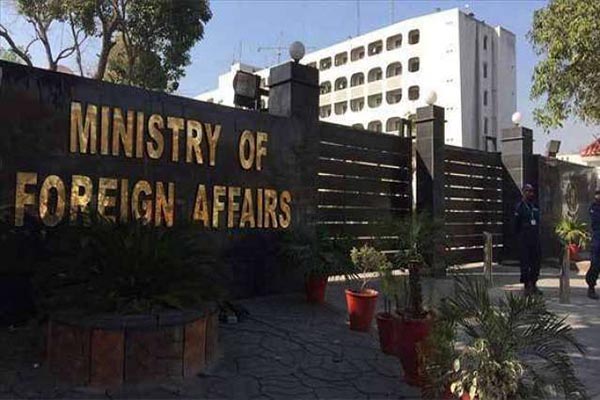
File photo
Islamabad granted presidential waiver to avoid sanctions that are usually applied under American International Religious Freedom Act
Pakistan on Wednesday rejected the United States’ “arbitrary and selective assessment” of declaring Islamabad a “country of particular concern” under its International Religious Freedom Act, according to a Foreign Office statement.
On Tuesday, U.S. Secretary of State announced that Pakistan, China, Burma, Eritrea, Iran, Nigeria, North Korea, Saudi Arabia, Tajikistan and Turkmenistan were being designated “for engaging in or tolerating systematic, ongoing, egregious violations of religious freedom.”
In its response, the Foreign Office said the designation was “completely against the realities on the ground and raises serious doubts about the credibility of the exercise.” It said that such “subjective designations” do not help the cause of global religious freedom, adding that Pakistan have been bilaterally engaging on the subject already.
Noting that Pakistan’s views had been conveyed to the U.S., the statement claimed Pakistani society was “multi-religious and pluralistic with a rich tradition of inter-faith harmony.” It said the Constitution guaranteed religious freedom and the protection of the rights of minorities.
The Foreign Office appeared to take special issue with the U.S. omitting India from any designation, saying that Delhi “openly disregards religious freedom and discriminates against minority communities in an institutionalized manner.” It said that Indian state complicity in organized violence against the Muslim minority was a matter of record, and recalled that cow vigilantes and mob lynchings of Indian Muslims were commonplace, with perpetrators enjoying complete impunity. “Systematic demonization, dispossession, marginalization and targeted violence against Muslims using the communal slur of ‘love jihad’ in Hindutva-inspired India has become commonplace,” it added.
Pakistan lamented that the U.S. State Department had entirely ignored the findings and recommendations of the U.S. Commission on International Religious Freedom, as well as U.S. Congressional hearings, on the mistreatment of minorities in India, as well as the violation of religious freedom all over the country.
“We believe the redress of the rising trend of intolerance, discrimination, xenophobia and Islamophobia requires global efforts based on the principles of cooperation and mutual understanding,” it said, adding that Pakistan was playing its part in this endeavor and would continue to do so.
Presidential waiver
America’s Ambassador-at-Large for International Religious Freedom Samuel D. Brownback has claimed that Pakistan has been exempted from strict economic sanctions that are automatically applied against any country designated under the International Religious Freedom Act.
“For Pakistan, Nigeria, Saudi Arabia, Tajikistan, and Turkmenistan, the Secretary [Pompeo] issued a waiver for the presidential action requirement, determining that there were important national interests of the United States requiring the exercise of the waiver authority,” he said.
The U.S. Commission on International Religious Freedom had suggested that India should also be designated, but Delhi was absent from the list issued earlier this week. To a question, Brownback admitted that Pompeo had not followed several recommendations of the commission.
“We watch the situation in India very closely. The secretary traveled there, multiple times … and is well aware of a lot of the communal violence that’s happening in India,” he said, adding that the matter has been raised at the highest levels but the government chose not to designate India at this point.
To another question, the ambassador said the designations had followed an extensive review of the situation in both India and Pakistan. He claimed that India was treated differently because “a lot” of the problematic actions in Pakistan were done by Islamabad, while most of India’s concerns were related to communal violence.
Reiterating some of the American concerns over Pakistan, he claimed that “half of the world’s people that are locked up for apostasy or blasphemy” were in Pakistani jails. He also alleged that Pakistan was also one of the sources for forced brides being sent to China. “Christians and Hindu women being marketed as concubines or forced brides into China because there’s not effective support, and then there’s discrimination against the religious minorities that make them more vulnerable,” he claimed.
